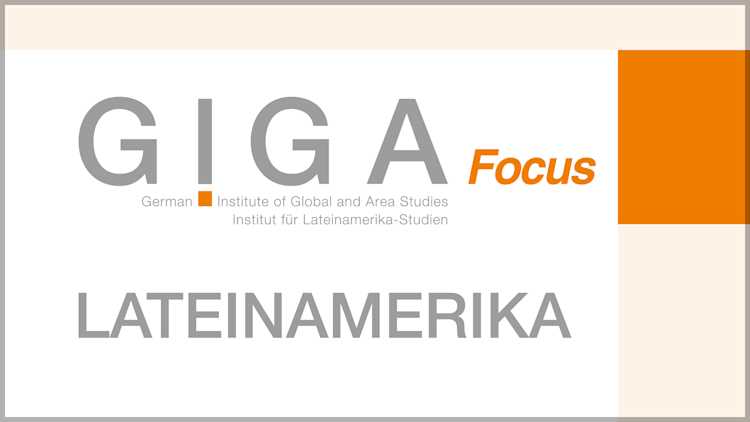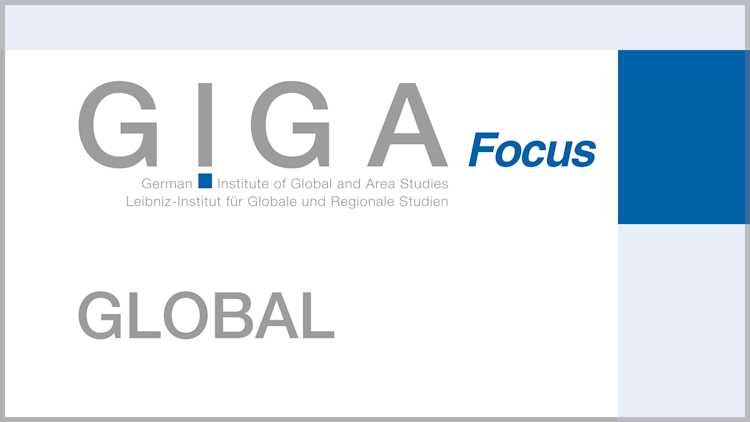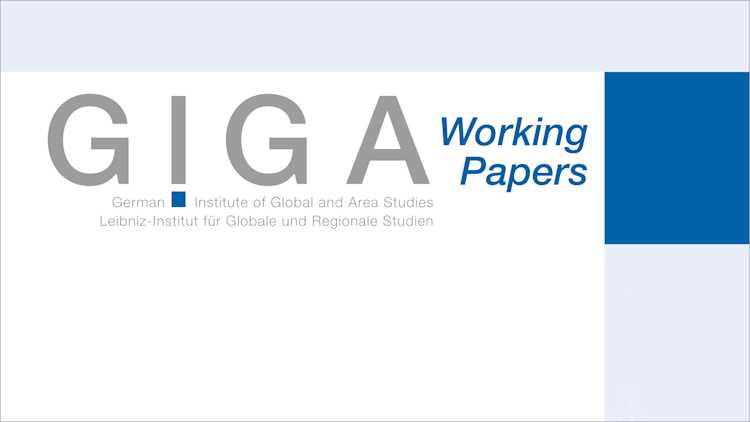- Home
- Publications
- GIGA Focus
- Brasilien – Regionalmacht mit globalen Ambitionen
GIGA Focus Latin America
Brasilien – Regionalmacht mit globalen Ambitionen
Number 6 | 2007 | ISSN: 1862-3573
Brasilien spielt in einer Vielzahl regionaler und internationaler Kooperationsverbünde eine tragende Rolle. Niedrige Institutionalisierungsgrade sollen Brasília dabei ein Höchstmaß an Flexibilität sichern. Beim jüngsten G-8-Gipfel wurde Brasilien gemeinsam mit China, Indien, Mexiko und Südafrika per Heiligendamm-Prozess in den Club der reichsten Industrieländer eingebunden.
Analyse: Im Rahmen des India Brazil South Africa Dialogue Forum (IBSA) und der G-20 nimmt Brasilien seit Jahren entscheidenden Einfluss auf WTO-Verhandlungen. Mit den G-4-Partnern Deutschland, Japan und Indien gründete die brasilianische Diplomatie eine Lobby für die Reform der Vereinten Nationen (VN). Auf regionaler Ebene wird die Südamerikanische Staatenunion (UNASUR) zuvorderst als strategische Machtbasis zur Interessendurchsetzung in globalen Foren begriffen. Zugleich verliert der um Venezuela erweiterte Mercosur innerhalb der außenpolitischen Agenda von Präsident da Silva zunehmend an Bedeutung.
Brasilien ist weder bereit, den Großteil der Integrationskosten in Mercosur und UNASUR zu tragen noch Souveränitätsrechte an regionale Institutionen abzugeben. Auch deshalb wird sein regionaler Führungsanspruch von Argentinien, Venezuela, und Mexiko unterminiert.
Diese Probleme wirken sich auf globaler Ebene kaum aus. Denn dort bedient sich Brasília geschickt diskursiver Instrumente, indem es sich im Rahmen der G-20 oder der G-77 als Anwalt des globalen Südens profiliert.
So sich die brasilianische Regierung auf mittlere Sicht aber nicht entschließt, ihrem globalen Gerechtigkeitsdiskurs in Südamerika Taten folgen zu lassen, könnte mit Legitimität und Glaubwürdigkeit auch ihre regionale Machtbasis schwinden.
Das Bündnis mit Indien und Südafrika wird keine ausreichende Gestaltungsmacht zur Reform von VN und Bretton-Woods-Institutionen generieren. Denkbare Strategien zur Interessendurchsetzung auf globaler Ebene bestehen in der Ausweitung der IBSA-Allianz und einer partiellen Annäherung an die USA.
Footnotes
Regional Institutes
Research Programmes
How to cite this article
Flemes, Daniel (2007), Brasilien – Regionalmacht mit globalen Ambitionen, GIGA Focus Latin America, 6, Hamburg: German Institute for Global and Area Studies (GIGA), http://nbn-resolving.de/urn:nbn:de:0168-ssoar-274712
Imprint
The GIGA Focus is an Open Access publication and can be read on the Internet and downloaded free of charge at www.giga-hamburg.de/en/publications/giga-focus. According to the conditions of the Creative-Commons license Attribution-No Derivative Works 3.0, this publication may be freely duplicated, circulated, and made accessible to the public. The particular conditions include the correct indication of the initial publication as GIGA Focus and no changes in or abbreviation of texts.
The German Institute for Global and Area Studies (GIGA) – Leibniz-Institut für Globale und Regionale Studien in Hamburg publishes the Focus series on Africa, Asia, Latin America, the Middle East and global issues. The GIGA Focus is edited and published by the GIGA. The views and opinions expressed are solely those of the authors and do not necessarily reflect those of the institute. Authors alone are responsible for the content of their articles. GIGA and the authors cannot be held liable for any errors and omissions, or for any consequences arising from the use of the information provided.






